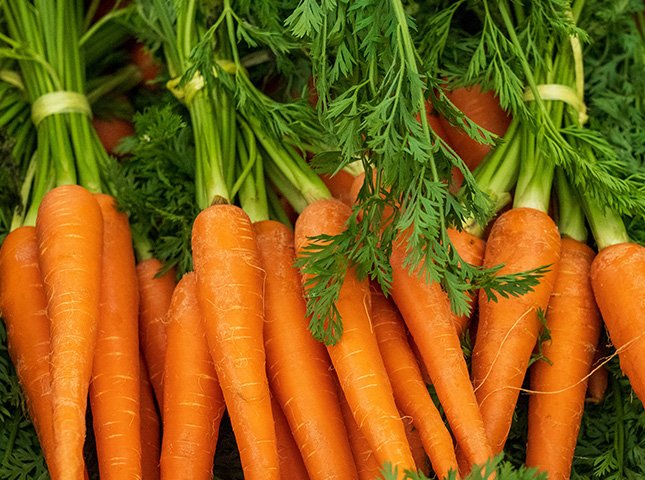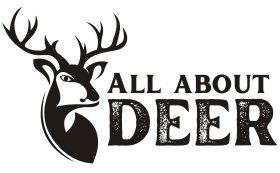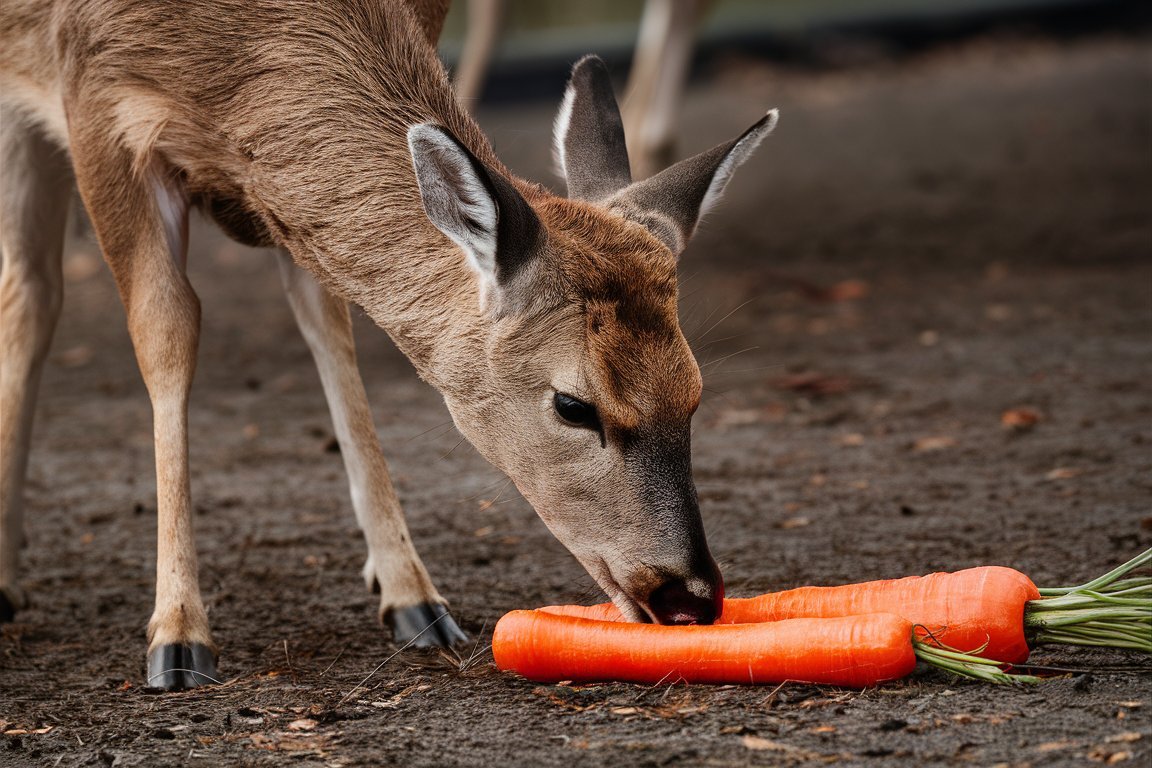Deer can indeed eat carrots, but they should be offered sparingly as an occasional treat rather than a staple food.
While carrots provide vitamins A, C, and K, along with fiber and hydration, they’re not a natural part of a deer’s diet. You should introduce carrots gradually and cut them into small pieces to prevent choking.
It’s essential to maintain a balance with their natural forage and comply with local wildlife regulations. Overfeeding carrots can lead to digestive issues and disrupt natural foraging habits.
To support deer health, consider alternatives like apples, acorns, or native vegetation. Understanding deer behavior around carrots can help you make informed feeding decisions.
Table of Contents
Carrots in a Deer’s Diet

While carrots can be a tasty treat for deer, they shouldn’t make up the bulk of their diet. Deer eat carrots willingly, as they’re drawn to the vegetable’s sweet flavor. However, it’s important to understand that carrots don’t provide the high caloric content that deer need from their natural forage.
When contemplating feeding deer, you should be aware that carrots can be a welcome supplement to their diet, especially during harsh weather conditions. They offer fiber and essential nutrients that can benefit deer.
However, providing food like carrots should be done cautiously and gradually to avoid digestive problems. Over-reliance on carrots or any single food source can disrupt the deer’s natural foraging habits and potentially lead to health issues.
If you’re thinking about offering carrots to deer, it’s vital to reflect on their overall nutritional needs. While carrots can be part of a varied diet, they shouldn’t replace the diverse vegetation that deer naturally consume.
Remember that deer’s feeding behavior can change based on the availability of other food sources in their environment. By understanding these factors, you can make informed decisions about supplementing a deer’s diet with carrots.
Nutritional Benefits for Deer
Despite their popularity as a treat, carrots offer several nutritional benefits for deer when consumed in moderation. While deer love to eat a variety of natural forage, carrots can supplement their diet with essential vitamins and minerals. The high water content in carrots, exceeding 80%, provides hydration, which is particularly beneficial during dry periods when water sources may be scarce.
Carrots contribute to a deer’s health in multiple ways:
- They’re rich in vitamins A, C, and K, supporting immune function and overall well-being.
- Their fiber content aids in digestion, promoting a healthy gut.
- Natural sugars in carrots can attract deer, potentially serving as a supplemental food source.
It’s important to note that while carrots offer these nutritional benefits, they shouldn’t replace a deer’s primary diet of natural forage. Carrots are low in protein and fat, which are vital for deer survival, especially during harsh winters.
As a result, consider carrots as an occasional treat rather than a staple food. When offering carrots to deer, do so sparingly and as part of a varied diet to guarantee they receive a balanced nutritional intake.
Feeding Carrots Safely
Now that we’ve covered the nutritional aspects, let’s focus on how to safely feed carrots to deer.
When offering carrots to deer, it’s important to cut them into small pieces to prevent choking hazards and guarantee easier consumption. As you introduce this new food, do so gradually to avoid digestive issues, especially if the deer aren’t accustomed to fruits and vegetables in their diet.
It’s vital to monitor the amount of carrots you’re providing. Overfeeding can lead to dependency on human-provided food and potential digestive disturbances. To maintain a balanced diet for deer, pair carrot feeding with natural food sources. This approach helps prevent nutritional deficiencies and supports their overall health.
Always comply with local wildlife regulations and guidelines when feeding deer. Improper practices can disrupt natural behaviors and health, as any Wildlife Biologist would attest.
Alternatives to Carrots
Deer’s dietary needs extend beyond carrots, and there are several nutritious alternatives you can offer these graceful creatures. Natural foods such as apples, clover, acorns, and leafy greens provide essential nutrients that align more closely with their natural diet. While carrots are good enough as an occasional treat, it’s vital to guarantee deer receive a balanced diet that meets their seasonal requirements.
During colder months, when deer’s caloric needs increase, you can provide high-energy options like:
- Rolled oats
- Corn
- Alfalfa hay (introduced gradually)
These foods help deer maintain their energy levels during harsh weather conditions. However, make certain to introduce new foods slowly to prevent digestive issues in deer accustomed to a different diet.
For a more sustainable approach, consider planting native vegetation that supports natural foraging behavior. Shrubs and fruit-bearing plants offer a diverse range of nutrients throughout the year. This method not only provides food but also enhances the habitat for deer and other wildlife.
Deer Behavior Around Carrots
While carrots aren’t a natural part of their diet, deer often display curious behavior when encountering this orange vegetable. You might be surprised to learn that deer are able to digest carrots without issue, despite their unfamiliarity with this food source.
Observations have shown that when first introduced to carrots, deer may exhibit hesitation, sniffing and cautiously approaching the new food. However, over time, they’ve been seen to develop a preference for these sweet root vegetables.
Trail camera footage and hunting videos have captured deer eating carrots with enthusiasm, sometimes consuming large quantities when available. This adaptability in their feeding habits demonstrates that deer would eat a variety of foods beyond their typical forage.
It’s crucial to recognize that the availability of alternative food sources greatly impacts their behavior around carrots. In areas where natural vegetation is scarce, deer may be more likely to seek out and consume carrots.
However, it’s worth considering that while carrots can attract deer, they shouldn’t be used as a substitute for Deer Repellent if you’re trying to keep these animals away from your property.
Frequently Asked Questions
Are Raw Carrots Good for Deer?
While deer can eat raw carrots, they’re not ideal as a primary food source. You’ll find they’re low in calories and nutrients. They’re best offered as occasional treats, but shouldn’t replace more nutritious forage options for deer.
What Should You Not Feed Deer?
You shouldn’t feed deer bread, junk food, or processed sugars. Avoid poisonous plants like rhododendron, azaleas, and mountain laurel. Don’t give them any food you haven’t researched thoroughly. Improper feeding can seriously harm their health.
What Vegetables Are Safe for Deer?
You can safely feed deer various vegetables. They’ll enjoy carrots, sweet potatoes, beets, leafy greens, broccoli, squash, and peas. Introduce new foods gradually and avoid processed items. Stick to natural, nutrient-rich options to supplement their diet.
Do Deer Like Apples or Carrots Better?
You’ll find deer typically prefer apples over carrots. They’re attracted to the sweeter taste and higher nutritional value of apples. While deer do eat carrots, they’ll usually choose apples first when both are available.
Conclusion
To sum up, you’ve learned that deer can safely consume carrots as part of their diet.
While these root vegetables offer nutritional benefits, they shouldn’t be the primary food source for wild deer.
You’ve discovered how to feed carrots responsibly and explored alternative foods that may be more suitable.
By understanding deer behavior around carrots, you’re better equipped to make informed decisions about supplementing their diet.
Remember, moderation is key when introducing any new food to wildlife.


